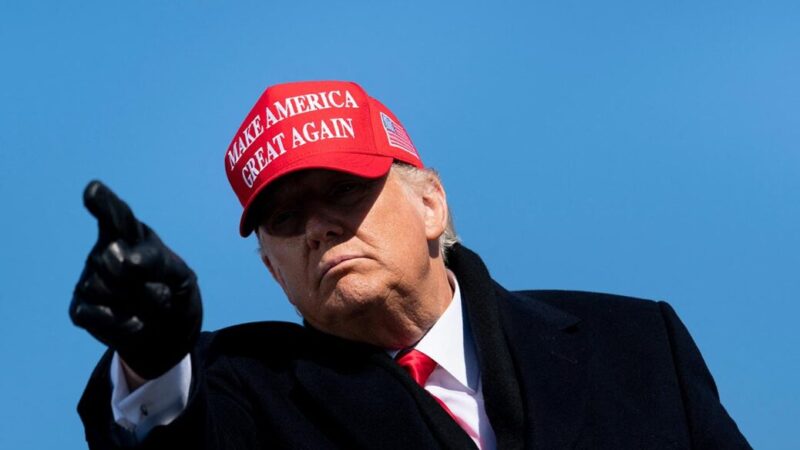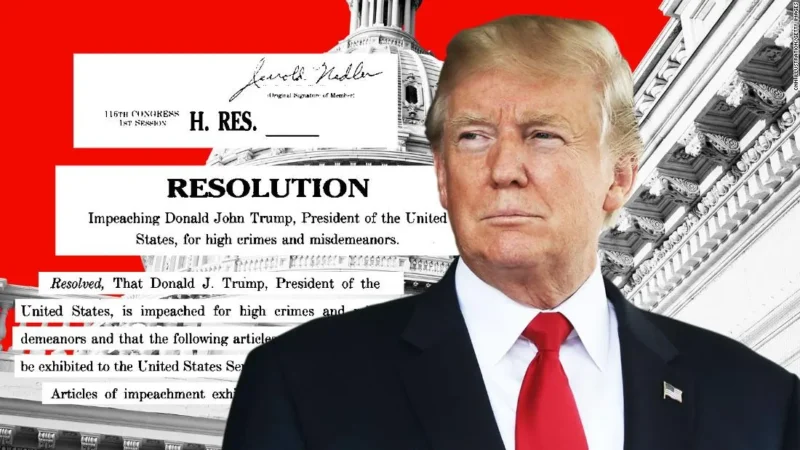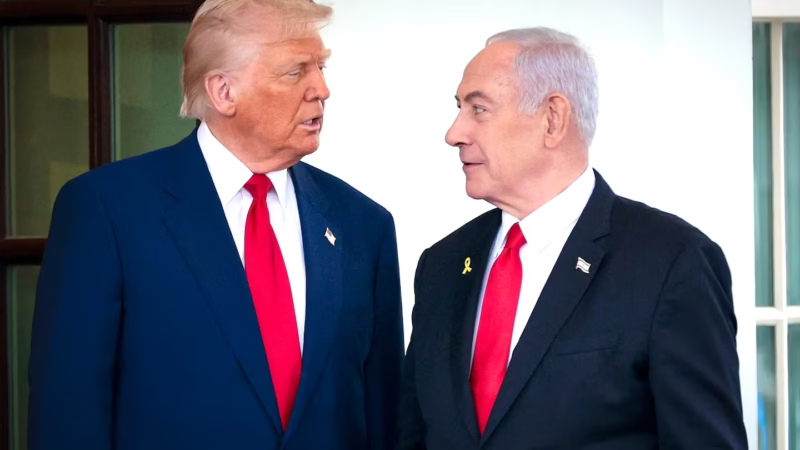Trump treated the White House like a business, made $320 million, racked up 34 felonies, and America barely blinked

President Trump has transformed the office of the presidency into a remarkably profitable enterprise, reportedly raking in $320 million in personal wealth—all while facing 34 felony charges. Yet, despite the enormous financial rewards tied directly to his time in power, public outrage appears surprisingly subdued.
Years ago, when Hillary Clinton, then first lady, was reported to have earned $100,000 from a $1,000 cattle futures investment—well before her husband’s presidency—it set off a media frenzy. The story dominated headlines and sparked a full White House inquiry. Fast forward to today: Jeff Bezos reportedly agreed to bankroll a $28 million promotional film for Melania Trump following a private dinner at Mar-a-Lago. The deal, which directly benefits the former first lady, eclipses Clinton’s profit by nearly 300 times. Still, Washington has largely remained silent.
The scope and scale of profit-making by the Trump family during their time in the political spotlight is without precedent. In just the past several months, they’ve secured $320 million via a newly launched cryptocurrency, negotiated billion-dollar international real estate ventures, and opened an exclusive club in Washington, D.C. dubbed the Executive Branch—with memberships starting at $500,000. Most recently, Qatar gifted a $200 million luxury aircraft for Trump’s use, both during his presidency and beyond, including for his future presidential library. That single gift is more valuable than all foreign gifts received by prior U.S. presidents combined.
Just days before his swearing-in, Trump hosted a private dinner for 220 early investors in the $TRUMP crypto coin, offering tiered access based on contribution levels—all to boost his personal enterprise, not a campaign fund. The event exemplifies a pattern of entangling personal business ventures with governmental influence—something even Washington’s murkiest ethics controversies rarely dared.
Some experts argue the Trump presidency may represent the boldest exploitation of presidential power for financial gain in U.S. history, outpacing scandals like Watergate or Teapot Dome.
Michael Johnston, a retired professor and longtime corruption researcher, said, “After 50 years of studying corruption, my head is still spinning.” But during the Trump era, what once sparked outrage now barely registers. The expected blowback has faded, revealing a dramatic shift in what the political class—and perhaps the public—deems unacceptable.
As the first U.S. president to serve while being a convicted felon, Trump has bulldozed ethical safeguards, dismissed internal watchdogs, replaced regulatory officials with personal loyalists, and maintained control of a Republican-led Congress that appears disinterested in any serious oversight. The result: a cloud of scandals that pass so quickly they fail to ignite lasting criticism.
Paul Rosenzweig, who previously served as counsel during the Clinton investigation, reflected on the broader apathy: “Either the general public never cared about this, or they cared but are now overwhelmed and exhausted,” he said. “Outrage was always a figment of elite imagination.”
The White House maintains that Trump is operating within the law regarding conflicts of interest—though the laws don’t actually apply to the president. Meanwhile, Trump’s sons have publicly dismissed the notion of limiting their business dealings, claiming they were criticized even when trying to show restraint during the first administration.
Nonetheless, a flicker of public resistance has surfaced—especially concerning the Qatar jet. According to a recent Harvard/CAPS Harris poll, 62 percent of Americans view the gift as ethically problematic. Even conservative commentators like Ben Shapiro and Laura Loomer have voiced unease.
Tucker Carlson, once a firm Trump backer, recently admitted on a podcast that the family’s financial entanglements raise legitimate “corruption” issues. Democratic lawmakers remain split in response, with some prioritizing economic messaging. Senator Christopher Murphy, however, has urged citizens to respond forcefully, arguing that traditional investigations are unlikely to succeed. “If Republicans keep losing special elections over this corruption, maybe they’ll rethink their stance,” Murphy said.
Back in 2016, Trump built his campaign on promises to “drain the swamp,” blasting the Clintons for accepting donations from Middle Eastern entities—even when those funds went to charity. Now, his own family profits directly from business dealings in the same region, with earnings funneled into private accounts.
Despite earlier commitments to separate his business from the presidency, Trump’s second term reveals no such boundaries. After being convicted on 34 counts of falsifying records and held liable for civil fraud, he continues operating without any visible ethical guardrails—cementing his place among those who have most aggressively monetized public office.
While Republicans have pushed hard to probe Hunter Biden’s overseas business dealings, no comparable level of scrutiny has been applied to Trump’s family finances. Former federal judge J. Michael Luttig remarked that Americans have “had no choice” but to accept Trump’s conduct, since his own party refuses to confront it.
The president is openly gaining from relationships that hold sway over government policy. Chinese entrepreneur Justin Sun, who holds $40 million in $TRUMP crypto, attended a closed-door event where Trump allegedly promised more lenient crypto regulations. Sun’s previous legal troubles were quietly dismissed by the SEC after Trump took office.
Similarly, both Bezos and Qatar now appear to enjoy smoother relations with Trump after making high-profile contributions, despite facing criticism from him during his first term.
His administration has elevated officials with deep financial ties to industries they oversee—such as NASA’s head, who has business links to Elon Musk, whose company reaps billions in government contracts. Former Qatar lobbyist Pam Bondi, now serving as Attorney General, greenlit the $200 million aircraft gift.
Meanwhile, Zach Witkoff, co-founder of the Trump-backed crypto venture and son of a key presidential envoy, announced a $2 billion deal with the UAE just weeks ahead of Trump’s official visit to the region.
Fred Wertheimer, founder of Democracy 21, warned that Trump “holds the top spots on the list of presidential graft” and that accountability, though slow, is inevitable. “It will take time, but it will catch up with him.”
Sources:
https://www.politico.com/news/2025/05/18/trump-crypto-qatar-jet-ethics-00123456
https://www.nbcnews.com/politics/donald-trump/trump-family-business-conflict-ethics-rcna148765
https://www.nytimes.com/2025/05/17/us/politics/trump-financial-deals-white-house.html
Note to our readers: We understand some may question the validity of this report. The information above is compiled from verified international and independent news outlets, including Politico, NBC News, and The New York Times. All claims have been fact-checked against multiple reliable sources to ensure accuracy and transparency.



